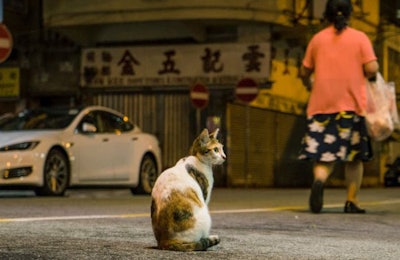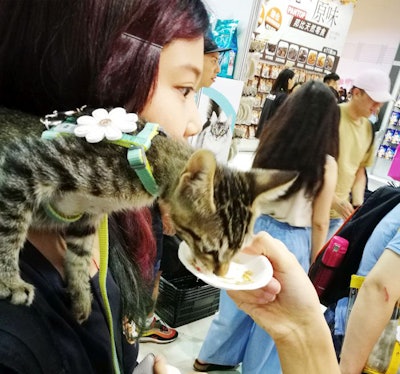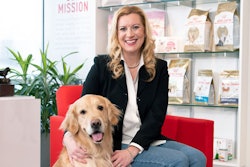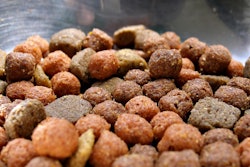
Hong Kong, a highly urbanized regional hub for international business that boasts the highest population of multimillionaires in the world, is going to the dogs — literally.
In 2019, the Hong Kong government's Census and Statistics Department expects the number of pet dogs and cats in both private and public housing to reach 545,600, which is almost double the number in 2005.
It may not seem like a lot compared to other highly developed countries, but the growth is significant given Hong Kong's limited land area and its reputation for having shoebox-sized apartments. According to the Hong Kong Housing Authority, the average size of a Hong Kong home is just 36.5 square meters. With dogged determination, a flat owner could squeeze in one cat or one small dog, but multiple pets is simply inconceivable in this market.
The other reason for the relatively small pet population could be the long hours that Hong Kong residents work. Dubbed as the world's hardest-working city, Hong Kong has people working from 51 hours to 75 hours a week, based on government data. This makes owning and maintaining a pet a tall order.
More pets, more food
Still, Hong Kong's pet ownership rate continues to grow, and with over half a million pets to feed in 2019 the pet food market is going to be busy.
Based on the latest data from the government's Agriculture, Fisheries and Conservation Department (AFCD), there are 2.4 million domestic households in Hong Kong of which at least 11 percent are believed to have a pet dog or cat.
The AFCD has also established that the poodle is Hong Kong's number one dog breed of choice. Mongrels, Pomeranian and Schnauzer — in this order — come as the locals' next favorite breeds. The tiny Chihuahua, which is ideal for small apartments, is only in fifth place.
In addition, the AFCD said about 70 percent of pet owners in Hong Kong feed their pets a mix of dry and moist commercial pet food. The rest feed their pets home-cooked food.
Statista, an online statistics, market research and business intelligence portal, expects Hong Kong's pet food demand to grow annually by 5.8 percent (CAGR 2019–2021). It also pegged Hong Kong's 2019 average pet food per-capita consumption at 8.1kg, which will translate to pet food revenues of US$157 million, mostly going to U.S. pet food companies.
Concurring information from the government's legislative council identifies the U.S. as Hong Kong's largest source of pre-packaged or processed pet food, accounting for over 40 percent of the total 37.8 million kilograms of dog and cat food imports in 2016.
As there are no pet food manufacturers in Hong Kong, other major sources come from member states of the European Union (EU), Thailand, Canada and China itself. Pet food in general is not subject to regulation in Hong Kong with respect to its production, import or distribution.

Events like the Hong Kong Pet Show showcase the opportunities present in the Hong Kong pet food market. | Photo by Alma Buelva
Chaupui Chan, founder of the Hong Kong Pet Trade Association, said that because of its free trade policy, Hong Kong has attracted almost all the leading foreign pet brands to its doorstep. This, he said, also opened opportunities for Hong Kong traders to expand by serving as a gateway for overseas pet brands that are also eyeing the huge pet market on the Chinese mainland.
The right fit
Practically speaking, Hong Kong doesn't look like a good place to raise pets, as most people have little to offer in terms of extra time and space to care for them. In fact, rigid housing conditions and people's busy lifestyles may even put pets' health at risk.
The former British colony is the world's fourth most densely populated place, with 16,444 people per square mile (6,349 people per square kilometer). With 7.5 million citizens plus a large community of expatriates, finding spacious housing in Hong Kong that can accommodate an energetic dog or cat is not easy.
Given the expense involved, pet ownership is highest among the upper class who live in private condominiums. Public estates have a strict no-pet policy, though they exempt tenants who require a service dog for medical reasons. But others who yearn for pets are challenging this rule citing equality, especially if they know they are responsible pet owners and their pets are well-behaved.
Because of the no-pet policy, many apartment dwellers keep pets in secret. Fearing eviction, they keep them cooped up all the time, deprived of outdoor opportunity and exercise. Some reports that reached Hong Kong's Society for the Prevention of Cruelty to Animals (SPCA) even cite the use of shock collars to discourage barking and avoid discovery.
The country's SPCA said government crackdowns in public housings have resulted in pet abandonment. In 2018, the group received 155 dogs and 227 cats surrendered by their owners.
Stuck at home either because they are illicitly kept or because their owners are busy at work, the pets are bound to get fat. The Veterinary Surgeons Board of Hong Kong has sounded the alarm about the growing cases of pet obesity as thousands are left alone in tiny apartments with not much to do but eat and sleep. The board estimates that about 40 percent of pet dogs in Hong Kong are overweight.
But there's a silver lining: The pet obesity epidemic has Hong Kong residents rethinking what and how much they feed their pets. It has also allowed vegan pet food products to gain notice.
As early as 2011, Hong Kong residents who wanted to try healthier pet food options could order dry and wet vegan pet foods from a vegan restaurant called Loving Hut. Foreign brands Benevo and Amì were also quick to make their vegan pet food lines available in local pet shops. Today, it's not that uncommon to hear or meet pet owners in Hong Kong who proudly talk about their fit vegan dogs and vegan cats.
Pet-friendly Hong Kong
Sociological developments of late are causing dramatic changes in the way Hong Kong residents regard pets. The fact that Hong Kong currently has the longest life expectancy and one of the lowest fertility rates in the world ironically bodes well for pets. As more seniors reach their late 80s, more couples fail or choose not to have children and more singles prefer to live alone, they all see having pets as panacea for loneliness.
These, along with improvements in public housing rules on pets and people's work-life balance, could rapidly boost Hong Kong's pet population overnight and with it, the demand for commercial pet food.
















